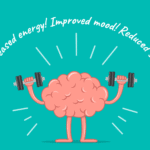
In today’s world, mental health problems are common. Many people in India face stress, anxiety, and depression. These issues are increasing, especially after the COVID-19 pandemic. People are searching for natural ways to find relief. Yoga therapy has emerged as one of the best solutions to improve mental health in a gentle and holistic way.
What is Yoga Therapy?
Yoga therapy is different from regular yoga classes. It is a special use of yoga techniques—such as physical postures, breathing exercises, and meditation—designed to help people with specific health problems, including mental health issues. A trained yoga therapist may customize the practices according to a person’s needs.
Why is Yoga Good for Mental Health?
Yoga is an ancient Indian practice. It connects the body, mind, and breath. This connection helps to calm the mind and reduce stress. It increases body awareness and teaches people to focus on the present moment. Regular yoga practice relaxes the nervous system. It balances the body’s stress response, helping people feel more peaceful.

Read More: Exercise to Calm Down During Working Hours: A Guide for Indian Office Workers
Yoga therapy helps reduce symptoms of:
- Depression
- Anxiety
- Post-Traumatic Stress Disorder (PTSD)
- Obsessive-Compulsive Disorder (OCD)
- Sleep disorders
These are all common problems in India today.
How Yoga Works for the Mind
Yoga therapy uses many simple and safe techniques:
- Asanas (Physical Postures)
These are gentle stretches and movements. They help release tension from muscles. Regular practice makes you feel less heavy and more relaxed. - Pranayama (Breathing Exercises)
Focused breathing calms the mind. Deep, slow breaths activate the parasympathetic system (the body’s natural “relax mode”). Pranayama is very effective for controlling anxiety and emotional swings. - Dhyana (Meditation)
Meditation helps people become aware of their thoughts. It allows the mind to slow down. Meditation reduces negative thinking and improves mood. - Yoga Nidra (Yogic Sleep)
Yoga Nidra is a guided relaxation. It is like a deep rest while staying awake. It helps people with insomnia, stress, and trauma. - Mindfulness
Yoga therapy builds mindfulness—paying full attention to the present. This practice is very useful for controlling worries about the past or future.
What Does Science Say?
Modern research supports the benefits of yoga for mental health. Many studies show that yoga can reduce symptoms of anxiety and depression. It helps improve sleep and boosts energy levels.
- A review published by Harvard Medical School confirms that yoga not only reduces anxiety and depression, but also improves brain functions such as focus and memory. Yoga increases levels of GABA, a brain chemical linked to a calm mind and better mood.
- A systematic review from 2025 found yoga therapy especially effective for reducing anxiety. Even just a few weeks of regular practice can show positive results.
- Indian researchers highlight that yoga, being rooted in Indian culture, is cost-effective and widely accepted. Yoga can be as effective as some psychological therapies and sometimes even better.
Why Indians Should Try Yoga Therapy
India is the birthplace of yoga. Yet many Indians only see yoga as a tool for physical fitness. Today’s doctors and psychologists recommend yoga therapy for mental wellbeing. Integrative yoga therapy combines traditional practices with modern science.
Yoga helps not just the young but also parents, elderly people, and those under work stress. Financial worries, family pressure, academic stress—all can be eased with yoga therapy. In India’s busy urban centers and even in villages, yoga is accessible. Its popularity is rising fast.
Important Tips for Beginners
- Always learn yoga from a trained yoga therapist. They will advise you on the best postures and breathing methods for your needs.
- Start slow. Even 15-20 minutes a day can help.
- Yoga therapy is not a replacement for a doctor. It works best when combined with medical advice and counseling.
- Pregnant women, people with injuries, or severe mental health issues should consult a physician before starting new practices.

Yoga and the Indian Mindset
Yoga matches Indian values and traditions. It promotes self-awareness, discipline, and harmony. Yoga therapy teaches people to accept themselves and manage emotions. This acceptance is missing in many “quick-fix” solutions today.
Yoga therapy’s success lies in its holistic approach. It calms the mind, heals the body, and uplifts the spirit—all important for good mental health.
Stories from India
Many Indians share personal stories about yoga’s healing power. Students use yoga to manage exam anxiety. Professionals report less burnout. Elderly people find relief from loneliness through group yoga classes. Hospitals and schools are also including yoga therapy programmes.
Some popular Indian yoga teachers, such as Swami Ramdev and Jaggi Vasudev (Sadhguru), have promoted yoga’s benefits for mental peace. Many local community centres in India now offer yoga therapy classes at low cost.
Yoga for the Future
The demand for yoga therapy is growing in India. Digital platforms now offer online yoga therapy sessions in Hindi and regional languages. Government programmes have started supporting yoga therapy for mental health in both urban and rural areas.
Experts predict that yoga therapy will play a big role in India’s future mental healthcare system. As more people realise the power of yoga, India may lead the world in holistic mental wellness.
Practical Steps to Start
To begin your journey, follow these simple steps:
- Find a certified yoga therapist or a reputed yoga school.
- Wear comfortable clothes and choose a quiet place.
- Practice with an open mind, without expecting miracles overnight.
- Combine yoga with healthy eating, regular sleep, and talking to friends or family.
- Keep a journal to note changes in mood or stress levels.
Conclusion
Mental health is as important as physical health. In India, where stress levels are rising, yoga therapy brings hope. It is natural, simple, and rooted in our tradition.
Yoga therapy does not judge or pressurize. It gently guides you to better mental wellness. Even a few minutes a day can make a big difference. The path of yoga is open to all—young and old, busy and free. With regular practice, you can find calm, strength, and happiness in your everyday life.
If you are struggling with mental health issues, talk to a healthcare professional. But do give yoga therapy a try. It could be the gentle turning point you need.
Author: Sonam










